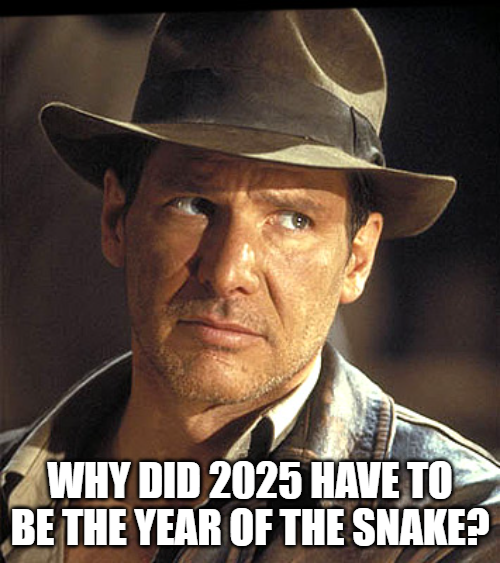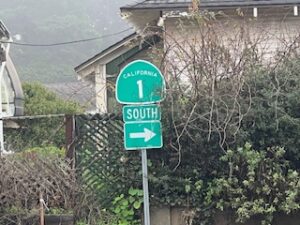
Holidays
Happy Civil Rights Day!
On my long-neglected blog I recommended replacing Martin Luther King Day with Civil Rights Day. Here’s the case I made.
For years I’d heard news stories about debates over whether or not to establish an official Martin Luther King holiday, and never did anyone report the arguments against. I always suspected that one was that we had way too many day-off-of-work holidays as it was. Having one three weeks after Christmas does seem a bit superfluous. MLK Day would be only the third national holiday named after a person, the others being Christmas and Columbus Day, commemorating the chief catalyst for Western culture and the chief catalyst for extending Western culture to the Americas. (In the case of the latter, make that Western cultures; English and Iberian influences were vastly different.) Some, I imagine, feel that only those rare individuals who have had such a radical impact should have holidays named for them. Dr. King isn’t in that league; the only Americans who are are the Founders; their holiday is July 4.
Here’s my argument against making [the third Monday of January] an official holiday: it’s not fair to everyone else involved in the civil rights movement. Independence Day isn’t just about one guy. We have a holiday for all those who made the Declaration of Independence happen. We should have a federal holiday called Civil Rights Day. It would be like Memorial Day, honoring leaders of past civil rights struggles instead of soldiers of past wars.
New Year’s in San Salvador
This was an amazing thing to see. Salvadorans seem happy and optimistic. A few years ago it was like: Don’t go to this place; don’t go to that place; you can go to this tourist place, it’s safe. Everything was either off-limits or a walled garden. Someone I know was robbed at gunpoint of her cellphone while sitting in her car with the window down and having a conversation. Everyone says she was lucky.
Now it’s a different country. There is still crime but you can go almost anywhere. The murder rate, once sky-high, is low by US standards. The downtown was dilapidated and dangerous. Now it’s being renovated, bustling, a nice place to walk around.
It’s all because, almost by chance, Salvadorans elected a president who was serious about stopping the gangs that were responsible for most of the crime, and politically skilled and lucky enough (very) to pull it off.
National turnarounds can happen. El Salvador, maybe Argentina, maybe the USA. Europe looks in a bad way, reminiscent of the late 1970s before Reagan and Thatcher. Of course this time is different, it’s worse this time, etc. But this time is always different, and thus rarely different at all: trends, including bad trends, don’t go on forever. Here’s hoping.
Christmas on the Northern CA Coast
December 31, 2024

This year I didn’t want to make any plans for joining what family I have left (transplants from CA to MN), and decided to spend Christmas Day alone. Not that I consider myself to be a hermit, but I suppose an odd thing about me is that I feel as comfortable in solitude as with others. Nothing against humanity, but I can go either way.
Besides, I already have enough “stuff.” In fact, I think I have too much stuff. There is something to be said for a simple existence. The “stuff” can end up owning you.
Anyway, the thought popped into my head of driving up to the North Coast and staying at my usual haunt at Ft Bragg, The Beachcomber.
A Memory – Christmas in the Barracks, 1978
( I wrote this memory of a barracks Christmas when I first started blogging, and expanded it for my memoir – from which this long reminiscence is pulled. I was stationed in Japan, then, a junior airman assigned to the FEN detachment.)
All during the year, Thea and I had not given up on our idea of celebrating a proper Christmas in the dorm. We needed to develop a critical mass of people who would go along with it, and something of a sense of community in the barracks. Marsh was keen as well; she reveled in holidays, any holidays, and the foundation was laid over the summer when the three of us began cooking a slightly more elaborate dinner for ourselves every Sunday afternoon, and sharing with anyone else who happened to be hanging around the day room, bored and hungry on a Sunday.
“Bring a plate and a fork, and a chair from your room! That was our cheery invitation— there was a sad shortage of chairs around the dinette table at the kitchen end of the day room. The girls from the Public Affairs office, Shell and Shirl, and any of Shirl’s constantly rotating flier boyfriends joined in, as did Tree and Gee. The resident vegetarian fixed a vat of eggplant parmigiana, another girl, newly arrived, had the touch with the most perfect fried chicken I had ever eaten. I had bought a crockpot and constructed marvelous stews and chilis. The weekly dinner was well established and well attended, even after the dorm was converted from all-female to an ordinary Air-Base group dorm…